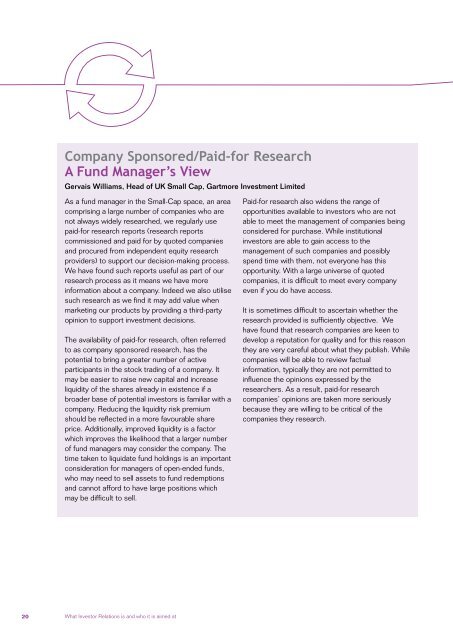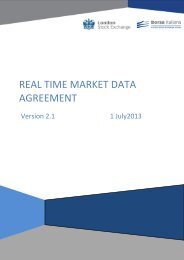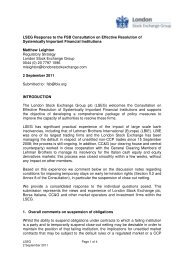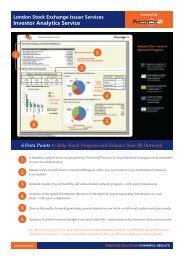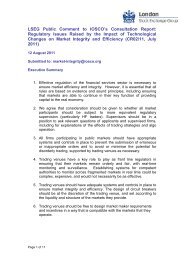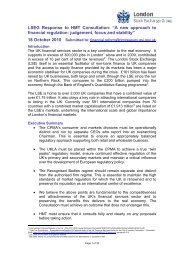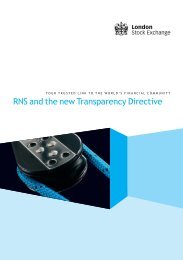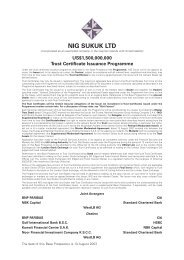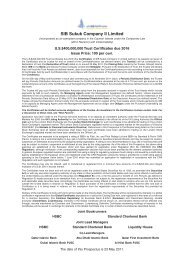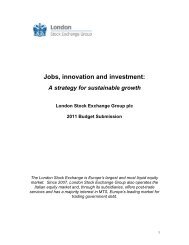Investor Relations - A Practical Guide - Investis
Investor Relations - A Practical Guide - Investis
Investor Relations - A Practical Guide - Investis
Create successful ePaper yourself
Turn your PDF publications into a flip-book with our unique Google optimized e-Paper software.
Company Sponsored/Paid-for Research<br />
A Fund Manager’s View<br />
Gervais Williams, Head of UK Small Cap, Gartmore Investment Limited<br />
As a fund manager in the Small-Cap space, an area<br />
comprising a large number of companies who are<br />
not always widely researched, we regularly use<br />
paid-for research reports (research reports<br />
commissioned and paid for by quoted companies<br />
and procured from independent equity research<br />
providers) to support our decision-making process.<br />
We have found such reports useful as part of our<br />
research process as it means we have more<br />
information about a company. Indeed we also utilise<br />
such research as we find it may add value when<br />
marketing our products by providing a third-party<br />
opinion to support investment decisions.<br />
The availability of paid-for research, often referred<br />
to as company sponsored research, has the<br />
potential to bring a greater number of active<br />
participants in the stock trading of a company. It<br />
may be easier to raise new capital and increase<br />
liquidity of the shares already in existence if a<br />
broader base of potential investors is familiar with a<br />
company. Reducing the liquidity risk premium<br />
should be reflected in a more favourable share<br />
price. Additionally, improved liquidity is a factor<br />
which improves the likelihood that a larger number<br />
of fund managers may consider the company. The<br />
time taken to liquidate fund holdings is an important<br />
consideration for managers of open-ended funds,<br />
who may need to sell assets to fund redemptions<br />
and cannot afford to have large positions which<br />
may be difficult to sell.<br />
Paid-for research also widens the range of<br />
opportunities available to investors who are not<br />
able to meet the management of companies being<br />
considered for purchase. While institutional<br />
investors are able to gain access to the<br />
management of such companies and possibly<br />
spend time with them, not everyone has this<br />
opportunity. With a large universe of quoted<br />
companies, it is difficult to meet every company<br />
even if you do have access.<br />
It is sometimes difficult to ascertain whether the<br />
research provided is sufficiently objective. We<br />
have found that research companies are keen to<br />
develop a reputation for quality and for this reason<br />
they are very careful about what they publish. While<br />
companies will be able to review factual<br />
information, typically they are not permitted to<br />
influence the opinions expressed by the<br />
researchers. As a result, paid-for research<br />
companies’ opinions are taken more seriously<br />
because they are willing to be critical of the<br />
companies they research.<br />
20<br />
What <strong>Investor</strong> <strong>Relations</strong> is and who it is aimed at


